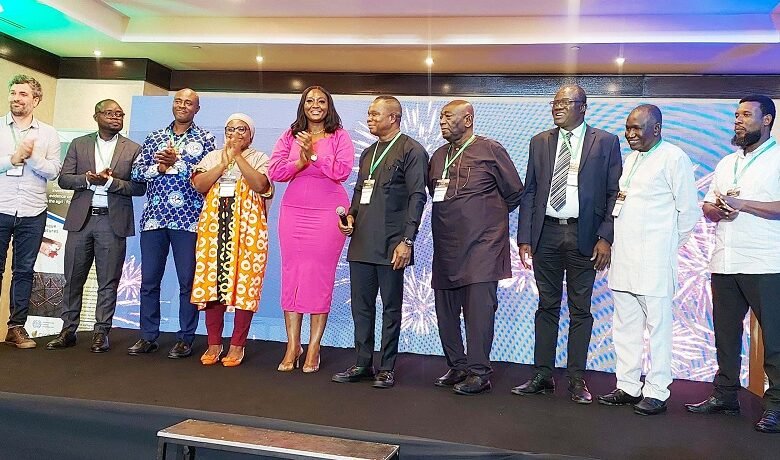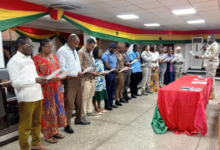
The International Labour Organisation (ILO) yesterday launched the JobAgri pilot project to strengthen agriculture and employment in Ghana.
The JobAgri project is expected to lay the groundwork for innovative policies that create decent jobs and sustainable growth in Ghana’s agriculture sector.
Speaking at the event, the Director of the ILO Country Office for Nigeria, Ghana, Liberia, and Sierra Leone, Dr Vanessa Phala, outlined the project’s objectives to improve data collection, policy development, and decent work in agriculture.
Dr Phala emphasized that the data collected would inform decisions to strengthen the agricultural sector and create more efficient employment opportunities.
“We are working with national institutions to ensure reliable data drives decisions. The project will fill critical knowledge gaps, especially in linking employment and production data,” she explained.
She said the JobAgri would help establish a multispectral, multi-stakeholder, and tripartite-plus policy dialogue.
This approach, she said aims to ensure inclusive discussions, particularly involving groups often left out of policymaking, such as women and youth.
“This collaboration brings all relevant partners together to share insights and expertise, together, we will address structural challenges and identify opportunities for improved employment in agriculture,” Dr Phala said.
Dr Phala highlighted the importance of getting the pilot right, adding that “If we succeed in Ghana, we can export solutions that work. But we must avoid exporting approaches that fail, that is why I urge all partners to work together for the success of this project.”
She was optimistic that the project would add value to policy design and implementation and also support the development of policies that foster growth in the agri-food sector, particularly for the youth and women.
The Chief Director of the Ministry of Employment and Labour Relations, Mr Kizito Ballans, said there was the need for a modern, resilient, and sustainable agricultural system capable of feeding the continent.
“If we can’t feed anyone else, we should at least be able to feed ourselves, food security, job creation, and environmental protection must be priorities,” he said.
Mr Ballans believed Ghana’s selection as the pilot country reflected its potential to lead by example, adding that “If we get it right here, it can inspire similar initiatives across Africa.”
He expressed concern about the aging population of cocoa farmers and urged for innovative approaches to draw young people into the sector.
“We need to create opportunities that are innovative, impactful, and rewarding, this project aligns with the United Nations Sustainable Development Goals (SDGs), particularly SDG 2 (Zero Hunger), SDG 8 (Decent Work and Economic Growth), and SDG 10 (Reduced Inequalities),” he said.
According to him, government had already made significant investments in agriculture through programmes like Planting for Food and Jobs and One District, One Factory.
Mr Ballans said these initiatives lay a strong foundation for the Job Agri Project and reiterated the government’s commitment to industrialising the sector to make it more productive, efficient, and competitive.
The Representative of the Food and Agriculture Organisation (FAO), Ms Janetta Carlucci, stressed the transformative potential of Africa’s agri-food systems to create sustainable and decent jobs.
She urged leaders to move beyond imagination and focus on designing effective policies to unlock this potential. She emphasized the need for evidence-based solutions to address labour quality, job creation, and inclusion across the agricultural value chain.
Funded by the German government, the pilot phase in Ghana is seen as critical for future expansion across Africa, the project will test solutions to inform strategic policies for agricultural development and decent work
BY AGNES OPOKU SARPONG







